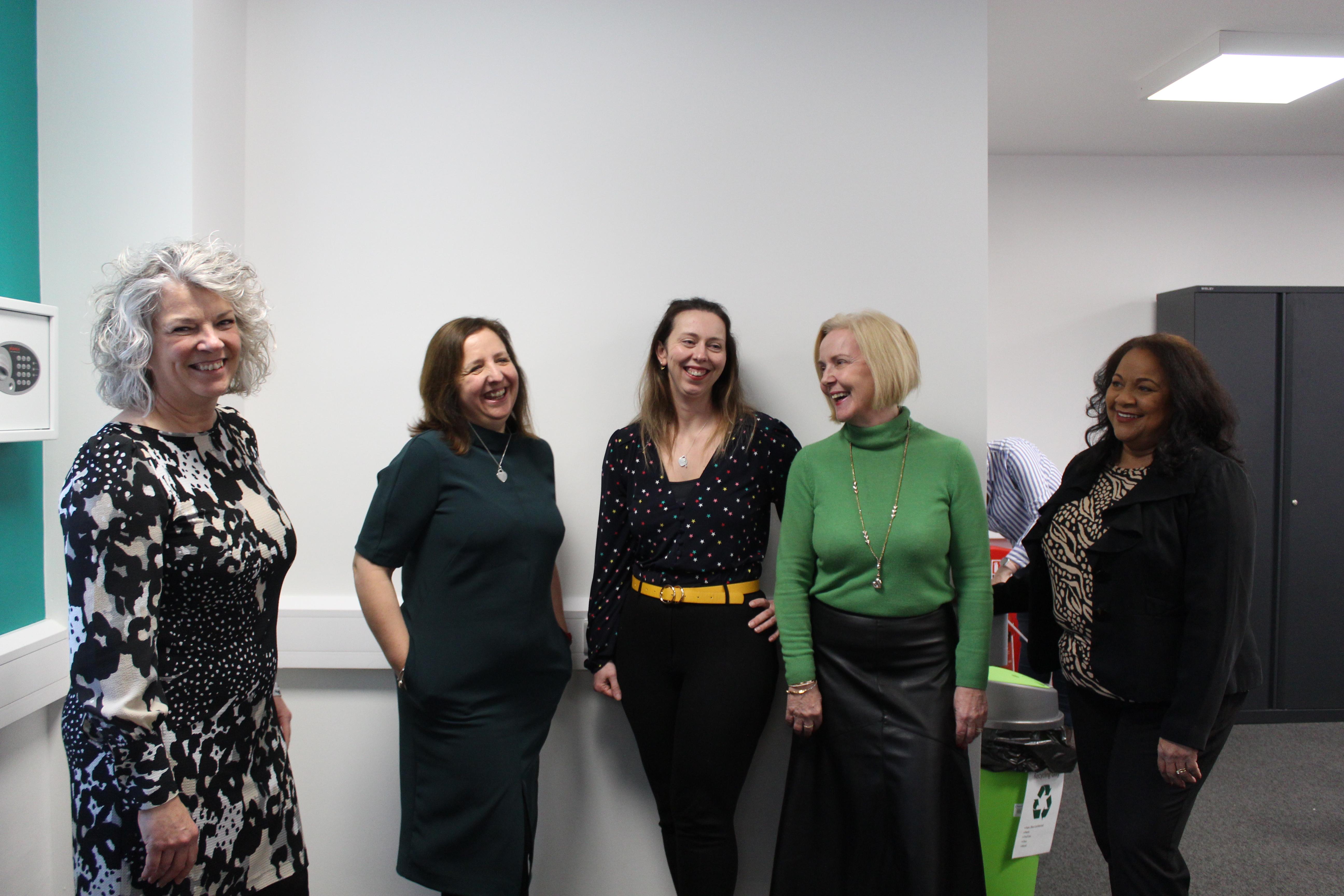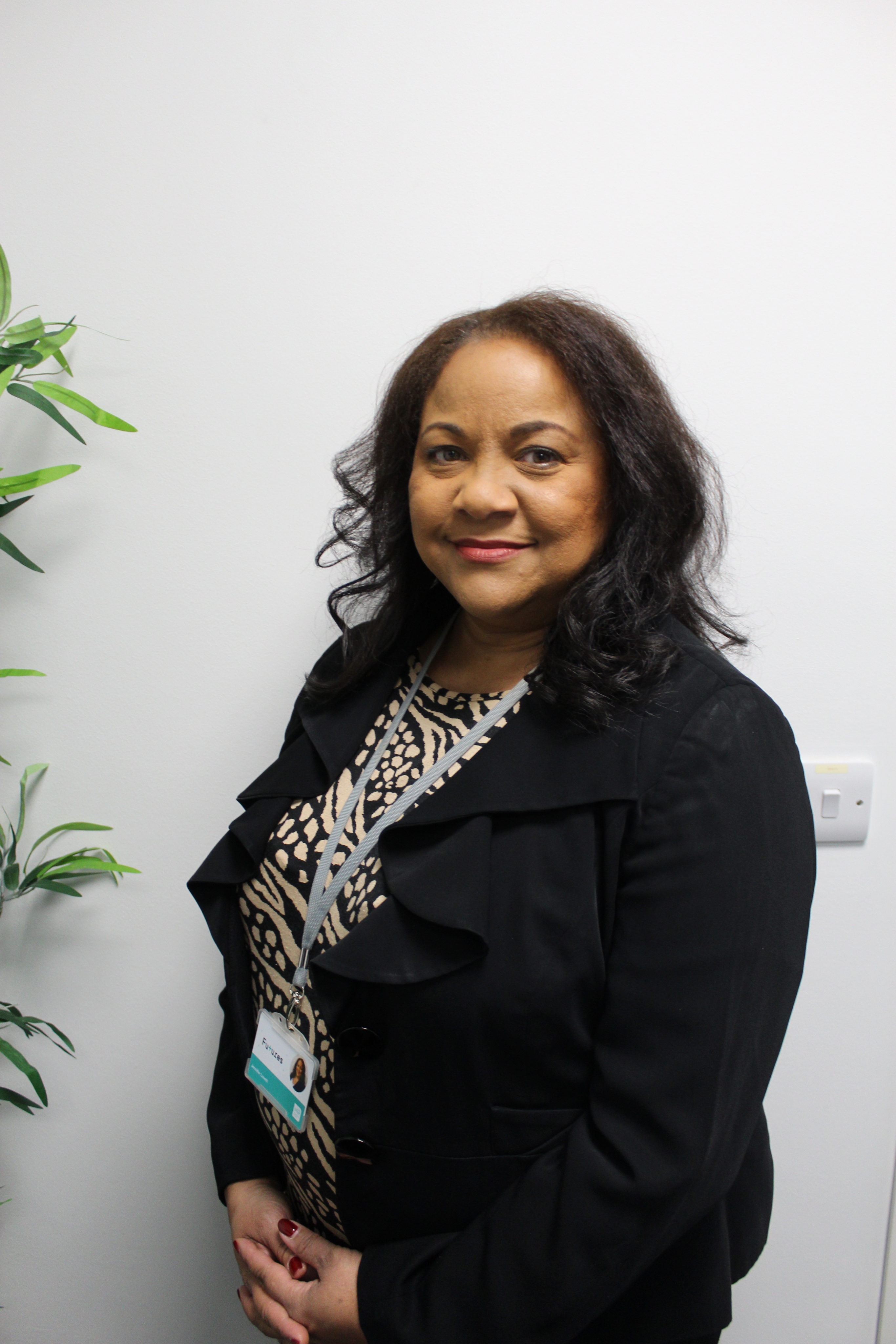
Jennifer on International Women's Day
To celebrate International Women’s Day, we sat down with our Executive Leadership Team to ask what embracing equity means to them.
Can you introduce yourself and tell us a little bit about your role at Futures?
My name is Jen Lovett and I’m the Associate Director of People and Culture here at Futures Group. My role is to ensure we create a great place to work for our staff; I lead our people plan which involves looking at how we can create an inclusive working environment, where everyone can learn, develop, grow and flourish so we can deliver great services.
Can you give us a quick overview of your career journey so far?
I got my first leadership role at the age of 22 and now I’ve been in HR for about 33 years. I have been very fortunate to be in different organisations that have supported me, recognised my potential and have helped me develop throughout my career.
My first role was as a secretary working for Boots, where I worked in the Boots Training Department. Careers guidance when I was at school and college was poor. Girls were encouraged into secretarial or admin work at Boots and boys encouraged to work in engineering at Raleigh Cycles. I worked for a manager who was passionate about HR and wanted to ensure that she was developing people in her area and encouraged me to complete a CIPD qualification. This is how I started my career in HR by having really supportive people around me, which I was quite lucky to have. The rest was down to me and sheer hard work, working my way up through the ranks.

How does it feel for you to be a woman in leadership?
I've been on quite a journey. So, I've worked in a variety of sectors, be that education, housing, health, ministry of justice and central government. In all those roles, I’ve held leadership positions, from middle management to senior management and now at an executive level here at Futures.
I'm quite privileged and proud to have achieved what I have done in my career, especially being a black woman and that's giving thanks to all the people who supported me along the way.
Being in a leadership role is about how I can use my influence to help other people follow a similar path, where they want to develop their careers as a female and seeing what barriers they will come up against. In my role as Associate Director of People and Culture, I can use my influence to look at how we as an organisation can remove some of those barriers within the workplace so that people can develop their careers in the right way.
What changes do you hope to see in the future for women to continue being successful in leadership positions?
For me, the question is quite a big one because I think it starts in schools. It starts in terms of how we're educating our young people and how they should embrace diversity. If schools can start educating young people in equality and instil in everyone the importance of respecting each other and encouraging every child to be the best they can be irrespective of gender, ethnicity or social class, this will help to ingrain the right behaviours.
For example, some boys view girls in a sexist and misogynistic way driven by social media. They grow up continuing to view women in this way which impacts on their future relationships with women in the workplace. As there are more men going into leadership roles, how are they then supporting women to develop in their careers into leadership positions if they don’t regard them as equal and fit for the role?
We should ensure that women and girls are supported in the right way, and are provided with not only educational opportunities, but also self-belief. There's a lot of personal development about self-belief and as people progress, individuals including senior leaders can have insecurities, such as imposter syndrome, especially in women. So, I believe we need to be educating women very early in their careers that you’ve earnt your place in your job or around the management table. So now it’s about how we can instil confidence in women that they genuinely do have a great voice and can make a difference.
The theme of this year’s International Women’s Day is Embracing Equity – what does that mean to you?
It's very much about how we can help people who may face barriers, be that into education, within the workplace or in life generally, where they need support because there are lots of stereotypes out there, particularly in terms of gender equity. It’s about ensuring that employers aren't just providing opportunities for everybody, they're looking at how they are providing the right individual support.
I think it's wider than just gender, it's about all protected characteristics, how certain people may need more additional help or adjustments to benefit from the same opportunities and to be on that level playing field. It's about listening to people's individual needs and seeing how you can help them in the right way to be successful.